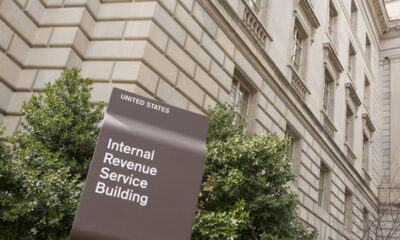Bankman-Fried Funneled Stolen Millions To Democrats

In the wake of a scandal that rocked the digital currency world, Sam Bankman-Fried, former CEO of FTX, was convicted last week by a New York jury of fraud and conspiracy, illuminating a shadowy web of covert political donations. The course of the investigation and trial has revealed a strategy that siphoned millions of dollars of investor funds into U.S. political campaigns under the guise of altruism.
Bankman-Fried fell from grace as his massive cryptocurrency empire crumbled. The revelation that FTX and Alameda Research, Bankman-Fried’s trading firm, shared finances raised alarms over the company’s solvency. This led to a swift and fatal drain of $6 billion from FTX by anxious customers, hastening its bankruptcy. Admitting to the misuse of billions in customer funds to bankroll his hedge fund, Bankman-Fried’s actions not only endangered individual investors but also shook the entire cryptocurrency sector.
The 31-year-old’s conviction on charges of wire fraud and conspiracy to commit wire fraud, among other felonies, could land him a sentence of over a century behind bars. Yet, beyond the financial deceit lies a deeper intrigue: Bankman-Fried’s sizable political donations and the apparent use of “dark money” to influence U.S. elections.
FTX’s implosion unearthed Bankman-Fried’s status as the second-largest individual donor to Democratic causes during the 2022 midterms. But more disturbing was the discovery of a calculated campaign to manipulate political outcomes, with over $100 million in misappropriated funds funneled to influence both Democratic and Republican spheres.
Central to this ploy were Nishad Singh and Ryan Salame, FTX executives who acted as “straw donors,” channeling money on behalf of Bankman-Fried. Their contributions supported both parties, supposedly to sideline anti-crypto politicians. Notably, Singh and Salame leveraged “dark money” groups, which maintain donor anonymity, to mask their activities.
The operation’s breadth was shocking, extending into Bankman-Fried’s family. Singh’s trial testimony revealed that Gabriel Bankman-Fried, Sam’s brother, and their mother, Barbara, were instrumental in this clandestine funding network. Barbara Bankman-Fried, with ties to Democratic politics and founder of Mind the Gap, a super PAC, was implicated in guiding these illicit contributions, a clear breach of federal law.
The details are damning: Barbara’s communications with her son and Singh suggest a deliberate strategy to obscure the true sources of political donations. Such revelations underscore the insidious nature of this scheme, where high-stakes finance and political influence peddling collide.
Furthermore, Singh’s testimony during the trial painted a portrait of Bankman-Fried as a man mired in hypocrisy, continuing to use Alameda Research funds for political donations despite knowing the company owed billions to customers. This misuse of funds for personal and political gain belies the principles of effective altruism Bankman-Fried publicly championed.
The unfolding saga of Bankman-Fried’s FTX is more than a tale of corporate collapse; it’s a cautionary story of the entanglement of money, power and politics. As the details continue to surface, the narrative resonates with the need for transparency and integrity in both the burgeoning crypto industry and the corridors of political power.






















